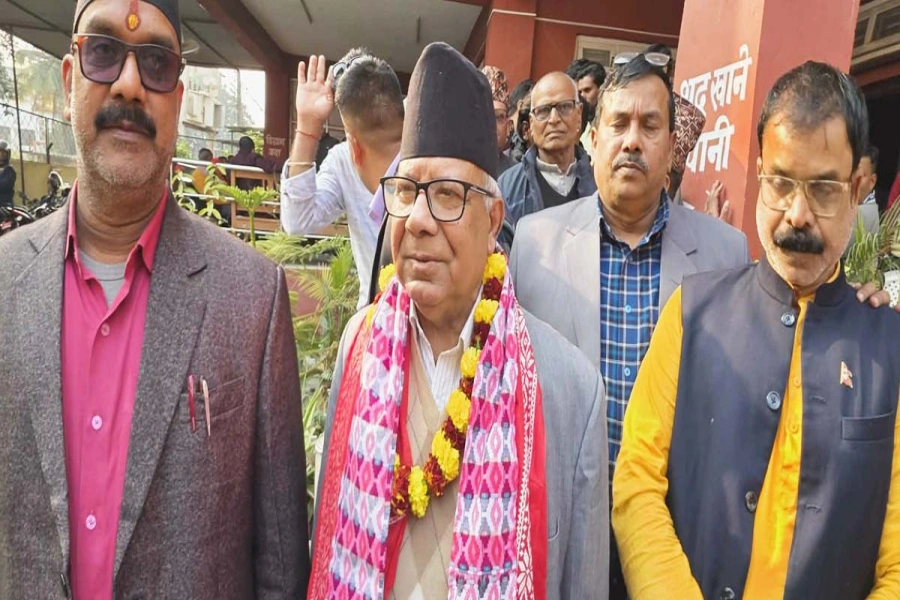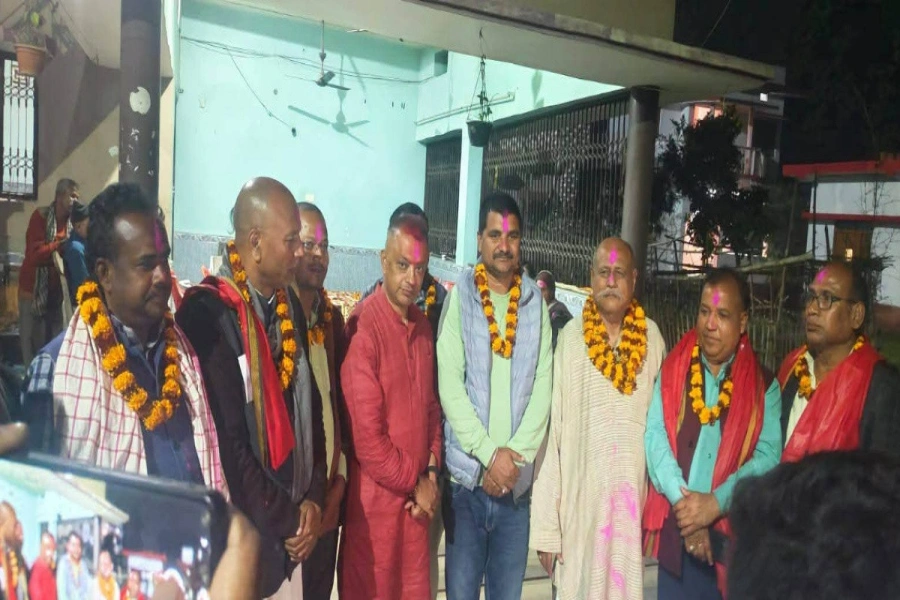KALIKOT, JULY 10: People of the Badi community have been living in rented houses along the roads near Khadachakra Municipality. The Badi community has many problems in this settlement.
Ganga Badi, who hoped to live in a good house after the political system changed in Nepal and local governments were put in place, says that she is still forced to live in a rented house. "No one is interested in solving our problems. Only when the election comes do the leaders visit us at our houses and promise to solve the problem," she said, “The leaders who reached the Badi basti (settlement) with an election agenda returned promising that they would provide us with land, employment and houses, but they did not come to the basti again and the problem is still there.
Krishna Badi of Khandachakra Municipality-1, who has been going through the same ordeal for years, says that the problem has not been resolved even though the agenda of his settlement has been made in the election. "It's been 21 years since we started living here without land," he said, “So far, we have only served as a source of income and a vote bank for the leaders.” Even after 21 years, the government has not been able to manage the 14 families living in Kalikot.
The two families were given houses by Janata Awas six years ago. They are also about to be destroyed by the rain. Everyone else is living in a rented house. They are earning their living by earning wages laboring at others’ houses. Now they have neither land nor a house to live in. "Vote for us. We will solve the problem if we win by your invaluable votes," Gita Badi still remembers the promises the politicians made to her. However, she said that they did not return after victory.
Uma Devi Badi: An epitome of struggle

In 2008, the government declared the Badi community free from sexual exploitation and and anpounced a plan for their rehabilitation, but it has not been implemented yet. They say that women from the Badi community are seen as sex workers. The decision of the Council of Ministers on December 28, 2008 declared the Badi women free from sexual exploitation.
Even years after the announcement, it has not been implemented and the Badi community is still facing the problem of sexual abuse. More problems are added during the rainy season. Rental houses are also breaking down. "We have to go to sleep at our relatives’ houses at night to save our lives," said Gita Badi.
Deprived of access to education
Adolescents in the Badi community are still deprived of access to education. Reshma Badi,14, said that she did not go to school as she had to work at home to make ends meet in the morning and evening. Like her, 13-year-old Gita Badi from the Badi community is busy with household chores without going to school. She questions, “How can I go to school when there is no money to buy notebooks, a pen, a bag, or the school uniform.” Ganga Badi of the Badi community admitted that the children could not go to school due to the compulsion to work at home. Even now, the men of this community beat their wives after getting drunk. Hence, the women demand practical education for the men.
Mother at the age of 15
The law prohibits marriage until the age of 20, but teenagers in remote districts, including Kalikot, become mothers at 15 years of age. Basanti (name changed) of a Badi settlement of Kalikot became a mother when she was just 15 years old. “I was trained that one should not practice child marriage,” she said, “I had to get married just to make ends meet.” Basanti says that she wanted to get married when she saw teenagers like her dressing and eating well. “I also wanted to read, write and work," says Basanti, "But after getting married, all the roads were closed." She is working in a hotel in the district headquarters. Her husband is in India for employment. Evil practices such as child marriage, chhaupadi and ethnic untouchability still exist in Kalikot. According to Basanti, she still lives in Chhaupadi (menstruation shed) during menstruation. Basanti was in the cowshed. She is sad that she could not break the evil practice even though she wanted to.
The Badi community has been crushing stones near the Karnali Highway for a livelihood. In the Badi community, children and the elderly crush stones and work in hotels. They say the government has done nothing for them. There are 46 people in 16 households in the Badi community, out of which 19 are children. Most of them do not go to school and some get married at a young age like Basanti. Officials say the local government is planning to address the problem of the Badi community.
Hope is turning into despair
When the local government came, the Badi community hoped that their lives would change for good. But Sangita Badi says that their hope is turning into despair. "Even if the government had given us only houses and, as promised, we would have taken care of the food and clothes ourselves," she said. Khadachakra Municipality Office said that land cannot be given and they have applied to the Landless Squatters’ Commission for the same.






































